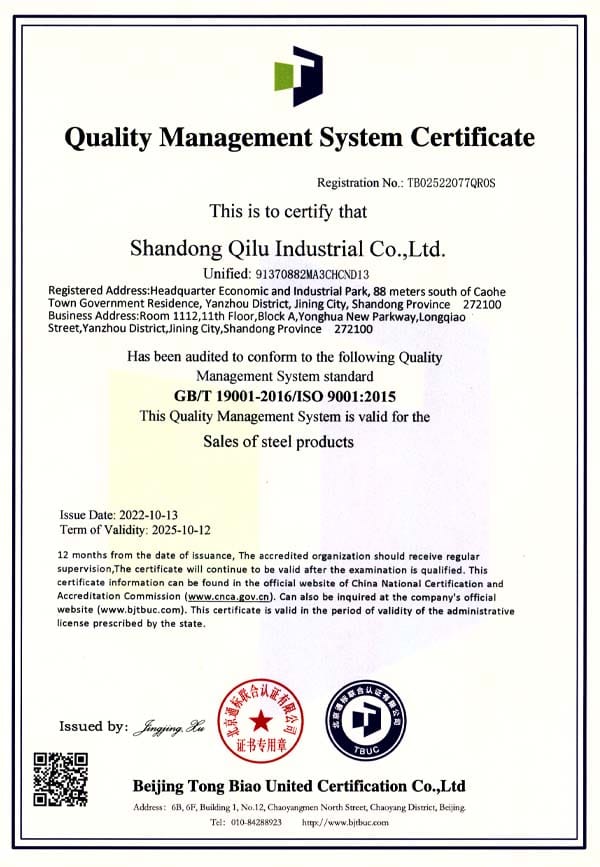Quality Control
Quality
As QILU Steel, we control and certify all our materials. All tests of Destructive Testing (DT) and Non-Destructive Testing (NDT) of steel materials, which form the most important part of QILU quality and steel properties verification, are carried out with modern and calibrated test equipment and according to procedures based on accepted standards.
High-end Testing Instruments

Carbon / Sulfur Analyzer
ELTRA’s CS-2000 is the only analyzer on the market for the determination of carbon and sulfur in organic as well as inorganic samples.
For this purpose, the CS-2000 is equipped with both an induction and a resistance furnace covering the full range of carbon and sulfur analysis. The CS-2000 is available with up to four independent infrared cells, which allow the precise and simultaneous analysis of high and low carbon and/or sulfur concentrations. The sensitivity of the cells can be customized individually by selecting the length of the IR-paths to ensure the optimum measuring range for each application.

Hardness Test
Hardness measures the resistance of a sample to material deformation due to a constant compression load from a sharp object.
The tests work on the basic premise of measuring the critical dimensions of an indentation left by a specifically dimensioned and loaded indenter. We are measuring hardness on Rockwell, Vickers & Brinell scales.

Tensile Test
Tensile Test in which a sample is subjected to a controlled tension until failure.
The results from the test are commonly used to select a material for an application, for quality control, and to predict how a material will react under other types of forces. Properties that are directly measured via a tensile test are ultimate tensile strength, maximum elongation and reduction in area.

Impact Test
The purpose of impact testing is to measure an object’s ability to resist high-rate loading.
It is usually thought of in terms of two objects striking each other at high relative speeds. A part or material’s ability to resist impact often is one of the determining factors in the service life of a part, or in the suitability of a designated material for a particular application. Impact testing most commonly consists of Charpy and IZOD Specimen configurations.

Spectro Test
Take advantage of our tailored steel services.
We are performing spectro test on raw material heat, a lot forged and heat treated in single batch to establish that the manufactured product is in conformity with the specified chemical composition.

UT Test
Ultrasonic testing (UT) is a family of non-destructive testing techniques based on the propagation of ultrasonic waves in the object or material tested.
In most common UT applications, very short ultrasonic pulse-waves with center frequencies ranging from 0.1-15 MHz, and occasionally up to 50 MHz, are transmitted into materials to detect internal flaws or to characterize materials. A common example is ultrasonic thickness measurement, which tests the thickness of the test object, for example, to monitor pipe work corrosion.

Quality
At QILU, we are committed to providing our customers with the highest-quality products that meet exacting standards of excellence. We understand that each product requires multiple production links, and we have established a rigorous quality control (QC) system to ensure that every aspect of the product meets our high standards.
Our QC process involves multiple stages of inspection, testing, and evaluation to identify any potential defects or issues with the product. We employ highly skilled professionals who specialize in QC and have extensive experience in identifying and addressing quality concerns.
Through our strict QC system, we carefully monitor and control every aspect of production to ensure that our products meet the highest levels of quality, reliability, and performance. Our commitment to perfection is an essential component of our dedication to delivering exceptional products and services to our customers.

